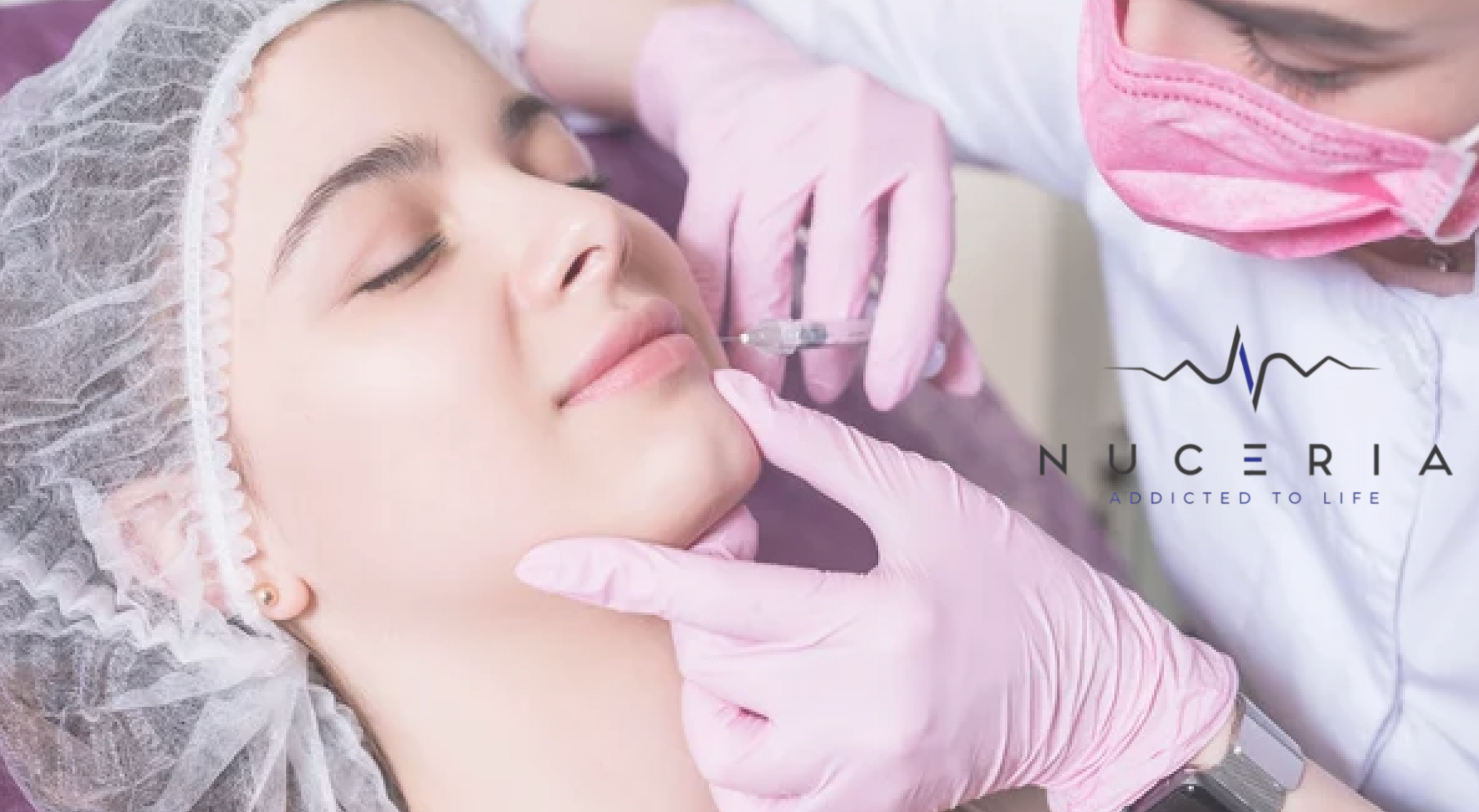Exosome Therapy: Advancing Skin and Hair Rejuvenation
Exosome treatment is a powerful technique that taps into the natural healing power of exosomes, which are tiny vesicles released by cells. This cutting-edge therapy shows great promise in the fields of dermatology and aesthetics, as well as in cancer therapy, regenerative medicine, and the treatment of neurological disorders.
Our in-depth article covers everything you need about exosome treatment, including its benefits for skin and hair rejuvenation. We'll also explore the factors that can help you decide how often to receive exosome treatment to get the full range of benefits from this groundbreaking therapy.
Understanding Exosomes Treatment:
Exosomes treatment involves the administration of exosomes – small extracellular vesicles containing bioactive molecules such as growth factors, cytokines, and nucleic acids – to target tissues for therapeutic purposes. In dermatology, exosome treatment promotes tissue regeneration, enhances collagen production, and stimulates cellular repair mechanisms in the skin. For hair rejuvenation, exosome treatment aims to improve scalp health, stimulate hair follicle growth, and mitigate hair loss by revitalizing dormant follicles and promoting hair regrowth.
What exactly are exosomes?
Exosomes are small vesicles containing cellular proteins, DNA fragments, and RNA. Cells excrete them, offering superior regenerative results compared to Platelet-Rich Plasma (PRP).
How is exosome treatment applied?
Exosomes are prepared beforehand and administered via mesotherapy to apply exosome treatment. This involves using very fine-gauge needles and topical anesthesia to ensure the treatment is 100% painless and 100% compatible with the body. Furthermore, visible results can be observed from the first session.
Applications of Exosomes Treatment for Skin:
Exosome skin treatment offers a wide range of benefits for addressing various skin concerns:
- Exosomes stimulate collagen synthesis and elastin production, leading to improved skin elasticity and a reduction in the appearance of wrinkles and fine lines.
- Exosome treatment promotes fibroblast activity and tissue regeneration, tightening loose or sagging skin for a more youthful and lifted appearance.
- Exosomes contain factors that promote cell turnover and skin renewal, resulting in a brighter, smoother, and more radiant complexion.
- Exosome treatment facilitates the remodeling of scar tissue and promotes the healing of wounds, resulting in improved texture and reduced visibility of scars.
Exosome skin treatment also holds promise for addressing acne and related skin conditions, offering a multifaceted approach to managing acne-prone skin:
Anti-inflammatory Effects: Exosomes contain bioactive molecules that possess potent anti-inflammatory properties, helping to reduce redness, swelling, and inflammation associated with acne lesions.
Antibacterial Activity: Certain exosome components exhibit antimicrobial properties, targeting acne-causing bacteria such as Propionibacterium acnes (P. acnes) and reducing the risk of bacterial colonization and infection within the hair follicles.
Sebum Regulation: Exosome treatment modulates sebum production by sebocytes, the oil-producing cells in the skin, thereby minimizing excessive oiliness and preventing clogged pores, a common precursor to acne development.
Restoration of Skin Barrier Function: Exosome treatment enhances the skin's natural barrier function by promoting the synthesis of ceramides, lipids, and proteins essential for maintaining skin hydration, integrity, and resilience. A strengthened skin barrier helps prevent moisture loss and protects against external irritants, reducing the likelihood of acne flare-ups.
Applications of Exosomes Treatment for Hair:
Exosome treatment for hair offers promising solutions for addressing hair loss and promoting hair growth, including:
Hair Follicle Stimulation: Exosomes stimulate hair follicle stem cells and promote angiogenesis, leading to increased blood flow to the scalp and enhanced nutrient delivery to hair follicles.
Hair Regrowth: By activating dormant follicles and prolonging the hair growth phase (anagen), exosome treatment stimulates new hair growth and improves hair density and thickness.
Scalp Health: Exosomes have anti-inflammatory and antioxidant properties that help maintain scalp health, reduce oxidative stress, and prevent dandruff and seborrheic dermatitis.
How many exosome treatments are needed:
The number of exosome treatments needed varies depending on the individual's specific concerns, treatment goals, and response to therapy. For optimal results, the recommended number of exosome treatments varies depending on the purpose:
- Skin Treatment: Healthcare professionals recommend 3-4 treatments monthly for the best skin treatment outcomes.
- Hair Regrowth: To promote hair regrowth, four treatments at 2-week intervals are recommended.
- Maintenance: Scheduling exosome treatments every 4-6 months helps maintain long-lasting results.
It's important to note that individual responses may vary, and consulting with a healthcare professional is essential to determine the most suitable treatment plan for specific needs.
There are potential risks associated with exosome therapy, although they are generally considered minimal. Some possible risks include:
1. Allergic reactions: Although rare, some individuals may experience allergic reactions to the components of exosomes or the substances used during the treatment process.
2. Infection: There is a small risk of infection associated with any injectable treatment, including exosome therapy. It's crucial to ensure that the treatment is administered under sterile conditions by a qualified healthcare professional to minimize this risk.
3. Side effects: While uncommon, some individuals may experience temporary side effects such as redness, swelling, or bruising at the injection site. These side effects typically resolve on their own within a few days.
4. Unknown long-term effects: Since exosome therapy is a relatively new treatment modality, the long-term effects still need to be fully understood. Further research is required to assess the safety and efficacy of exosome therapy over extended periods.
Expanding Beyond Aesthetic Purposes
The versatility of exosomes extends far beyond their initial cosmetic applications:
Exosomes as Therapeutic Vehicles:
Exosomes possess several inherent advantages as therapeutic vehicles, including their small size, lipid bilayer membrane, and ability to traverse biological barriers. These characteristics make them ideal candidates for delivering therapeutic payloads such as drugs, nucleic acids, and proteins to target cells or tissues with precision and efficacy. Exosomes possess intrinsic biocompatibility and low immunogenicity, reducing the risk of adverse reactions and enhancing therapeutic potential.
Cancer Therapy:
In oncology, exosome-based therapies are promising for cancer diagnosis, prognosis, and treatment. Exosomes derived from tumor cells carry specific molecular signatures that reflect the pathological status of the disease, making them valuable biomarkers for early detection and monitoring of cancer progression.
Additionally, engineered exosomes can be loaded with anti-cancer agents such as chemotherapeutic drugs, small interfering RNAs (siRNAs), or immune-modulating proteins, enabling targeted delivery to tumor cells while minimizing systemic toxicity. Clinical trials are underway to evaluate the safety and efficacy of exosome-based therapies for various types of cancer, offering hope for personalized and effective treatment approaches.
Regenerative Medicine:
Exosomes play critical roles in tissue repair and regeneration by modulating cellular responses to injury and promoting angiogenesis, cell proliferation, and differentiation. As such, exosome-based therapies hold immense potential for regenerative medicine applications, particularly in treating degenerative diseases, musculoskeletal injuries, and wound healing.
Mesenchymal stem cell-derived exosomes, in particular, have shown promising results in preclinical studies and early-phase clinical trials for promoting tissue regeneration and modulating inflammatory responses. These findings underscore the therapeutic utility of exosomes as a cell-free alternative for regenerative therapies, circumventing limitations associated with cell-based approaches.
Neurological Disorders:
The blood-brain barrier (BBB) poses a formidable obstacle to delivering therapeutic agents for neurological disorders. Exosomes offer a promising solution to their ability to cross the BBB and deliver bioactive cargo to neuronal cells. Exosome-based therapies hold potential for the treatment of neurodegenerative diseases such as Alzheimer's disease, Parkinson's disease, and amyotrophic lateral sclerosis (ALS), where aberrant protein aggregation, neuroinflammation, and neuronal dysfunction contribute to disease pathology.
Engineered exosomes loaded with neuroprotective factors, growth factors, or small molecules hold promise for mitigating disease progression and preserving neuronal function in these debilitating conditions.
Conclusion
Exosome treatment offers natural and versatile solutions for various aesthetic and medical needs, from enhancing collagen production and promoting tissue regeneration to stimulating hair growth and mitigating hair loss. Furthermore, the applications of exosomes extend beyond aesthetic purposes. They hold immense promise in areas such as cancer therapy and regenerative medicine. In oncology, exosomes are investigated for their potential in early cancer detection and targeted drug delivery, offering personalized treatment approaches with minimized side effects. In regenerative medicine, exosomes play crucial roles in tissue repair and regeneration, offering potential treatments for degenerative diseases and musculoskeletal injuries.
As research progresses and our understanding of exosome biology deepens, the clinical utility of exosome treatment is poised to expand further, revolutionizing modern medicine and transforming how we approach skincare, haircare, and therapeutic interventions. Exosome treatment offers natural, effective, and personalized solutions for rejuvenation and regeneration, promising to improve patient outcomes and enhance quality of life.
Request an appointment here: https://mynuceria.com or call Nuceria Health at (305) 398-4370 for an appointment in our Miami office.
Check out what others are saying about our services on Yelp: Wellness Center in Miami, FL.







